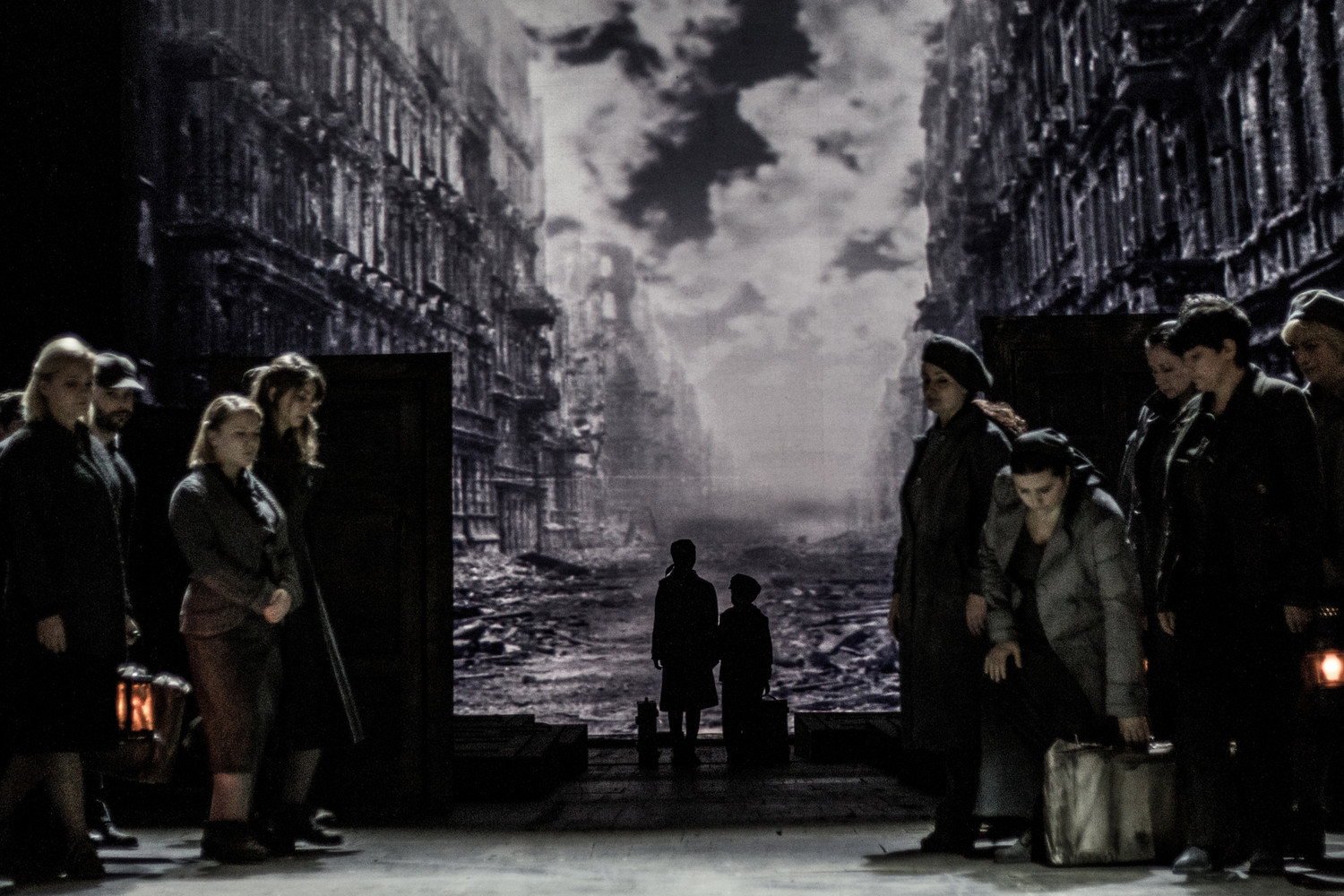Review: PHANTOMS at OPERA WROCLAW - POLISH MASTERPIECE IN A FRESH WAY

Mickiewcz's masterpiece "Dziady" which play "Phantoms" is based on is one of most important opus in polish culture and awareness. You read this at school for multiple occasions, you watch it in theaters, listen on the radio, one way or another from time to time it crosses your way. As a Pole you know it and like it or be tired of it because of it constant presence.
Dziady itself is and ancient Slavic feast, a rite whose essence was communing the living with the dead, have a communication, talk with ghosts and eventually help them if needed. The purpose of those ritual activities was to win the favor of the deceased, who were considered to be carers in the sphere of fertility.
The piece is well known but also, as we may see in Opera Wroclawska, opens new ways to interpretation and be like a color book where you can put your own paints - that's what happened here. It's not an easy thing to do to rewrite a known story over and over again but as every true jewel can shine in different angles.
The scenery of the play starts in Wroclaw afer World War Two - with emigrants from Belarus, Lithuania, Ukraine (so the place where Dziady were hold in the first place) coming to find a new home. People resettled to a German city with a huge and painful history. Memories are melted - new habitants with no ruts struggling with foreign ghosts but as it turns out people and their characters are universal despite time and place.
Scenery is dark - grey, navy blue, black - shades of the past or maybe life? Choir is on the scene all the time - ghosts are appearing and disappearing from the crowd - and it's not obvious who is who. Are they dead or alive? There are suitcases - travelers from East or afterlife are coming and going on the background of ruined Wroclaw. There is darkness, mistery, some kind of sadness and struggle, uncertainty of the present, but also uncertainty of what will happen.
There are some lead characters - captured souls in-between looking for some peace - children raised with no pain, a cruel human being, a woman with disregard for man - but there are caught in a mass, they are a real lead character here, they judge, pardon or punish - it's a true united power.
Director (Jaroslaw Kret) made a great non academic scenery for this masterpiece and it is very accomplished work. Moniuszko's music conducted by Piotr Borkowski is dark and made a perfect background for leading singers. A perfect beginning is song of Jacek Halas with hurdy-gurdy introduced perfectly to the atmosphere of murky rite. Scenography - bunch of doors are showing possible passage between here and there, life, dead and everything in-between reminds all the time that everything is transitive. This work makes a fresh but dignified interpretation on one of the most important masterpiece of polish literature.
The play was a part of celebration composer's 200 birthday as year 2019 had been announced Moniuszko's Year.
Photo credit: Opera Wroclawska
Reader Reviews
Videos

